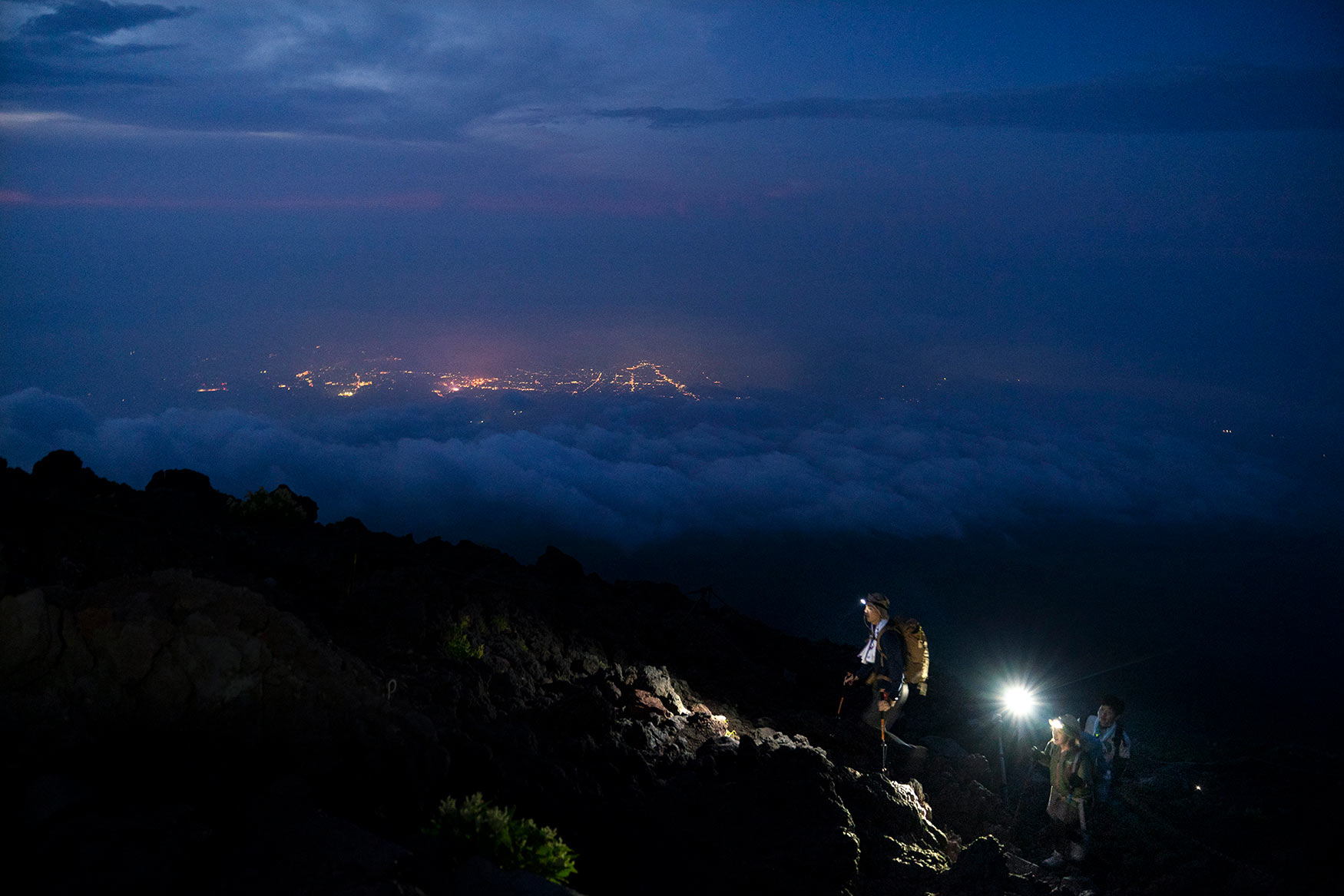Olympic bidder Sapporo has erratic snowfall

After two months of almost no snow, Japan’s northern city of Sapporo was overwhelmed with the white stuff.
Earlier this month, about 14 inches (34 centimeters) fell in just six hours following the nearly barren months of December and January.
The snowfall was good news for tourism, for the “look” of the annual Sapporo Snow Festival, and for organizers who hope to bring the 2030 Winter Olympics to the city. Sapporo hosted the Winter Olympics back in 1972.
But the lack of snow — and then an abundance of it — is also a sign that the local climate is changing, which has researchers in the area watching the weather very closely.
A worker blows fresh snow off a snow sculpture celebrating Sapporo's hosting of Tokyo 2020's marathon and race walk during the Sapporo Snow Festival, Feb. 4, 2020, in Sapporo, Hokkaido, Japan. (AP Photo/Jae C. Hong)
“We often have this kind of event,” Dr. Tomonori Sato, an associate professor at Hokkaido University, told The Associated Press. “However, the magnitude was abnormal. This maybe is because of warming temperatures.”
Sato predicts that Hokkaido, the island where Sapporo is located, will have more warming winters, which has to be a worry for an area that is officially bidding for the Winter Olympics.
According to Sato, January’s average daily minimum temperature in Sapporo has been continually rising: almost 16.2 degrees Fahrenheit (9 C) over the course of a century based on his analysis.
“It has shifted dramatically,” Sato said.
A man rides his bike as snow is pile up in front of a ramen restaurant, Feb. 5, 2020, in Sapporo, Hokkaido, Japan. (AP Photo/Jae C. Hong)
Sato said there will be snow if Sapporo gets the Winter Olympics. But he could’t guarantee much snow 80 years from now.
“Even if Sapporo gets snow, it will melt right away,” Sato said. “At the end of this century, it will be difficult maintain the snow festival.”
In fact, it was difficult to keep the snow festival going this year.
Self-Defense Force members remove fresh snow piled on a large snow sculpture of Poland's Palace on the Isle during the Sapporo Snow Festival at Odori Park in Sapporo, Hokkaido, Japan, Feb. 6, 2020. (AP Photo/Jae C. Hong)
Trucks had to bring in snow from everywhere to keep the festival going, an event that attracts hundreds of thousands of tourists. The city’s 40-year-old ski marathon event was cancelled due to a lack of snow.
Paul Sheehan, an Australian who has been coming to Japan for several years to build snow sculptures, noticed the difference this time in Sapporo’s Odori Park.
“Previous years, we’ve had three, four meters of snow,” he said. “Where we are standing now, last year we were a meter higher. We are now standing one meter lower.”
A man walks across an icy street Feb. 6, 2020, in Sapporo, Hokkaido, Japan. (AP Photo/Jae C. Hong)
A map showing the city of Sapporo is covered in fresh snow on an observation deck atop Mount Moiwa, Feb. 4, 2020, in Sapporo, Hokkaido, Japan. (AP Photo/Jae C. Hong)
A mother pulls her children in a sled on an icy sidewalk, Feb. 4, 2020, in Sapporo, Hokkaido, Japan. (AP Photo/Jae C. Hong)
People smoke in a smoking room made with ice blocks at the annual Sapporo Snow Festival Tuesday, Feb. 4, 2020, in Sapporo, Hokkaido, Japan. (AP Photo/Jae C. Hong)
Chairlifts transport skiers at a ski resort Feb. 5, 2020, in Niseko, Hokkaido, Japan. (AP Photo/Jae C. Hong)
Two workers remove fresh snow piled on a large snow sculpture at the annual Sapporo Snow Festival, Feb. 4, 2020, in Sapporo, Hokkaido, Japan. (AP Photo/Jae C. Hong)
A snow sculpture is covered with fresh snow at the Sapporo Snow Festival, Feb. 6, 2020, in Sapporo, Hokkaido, Japan. (AP Photo/Jae C. Hong)
Tourist look at illuminated ice castles at the Lake Shikotsu Ice Festival in Chitose, Hokkaido, Japan, Feb. 6, 2020. (AP Photo/Jae C. Hong)
Tourists take a selfie in a tunnel made with ice blocks at the annual Sapporo Snow Festival, Feb. 4, 2020, in Sapporo, Hokkaido, Japan. (AP Photo/Jae C. Hong)
Tourists gather in front of a large snow sculpture of Poland's Palace on the Isle during the annual Sapporo Snow Festival at Odori Park in Sapporo, Hokkaido, Japan, Feb. 5, 2020. (AP Photo/Jae C. Hong)
A man walks through a snow storm past a coffee shop Feb. 5, 2020, in Sapporo, Hokkaido, Japan. (AP Photo/Jae C. Hong)
Visitors are covered in snow as they watch a presentation projected on a large snow sculpture Feb. 5, 2020, in Sapporo, Hokkaido, Japan. (AP Photo/Jae C. Hong)
A tourist walks down the steps of an ice castle at the Lake Shikotsu Ice Festival in Chitose, Hokkaido, Japan, Feb. 6, 2020. (AP Photo/Jae C. Hong)
A commuter rides a tram during a snow storm, Feb. 5, 2020, in Sapporo, Hokkaido, Japan. (AP Photo/Jae C. Hong)
A woman stands on a snow-covered platform as a train approaches a station Feb. 3, 2020, in Biei, central Hokkaido, Japan. (AP Photo/Jae C. Hong)
Text from AP News story AP PHOTOS: Olympic bidder Sapporo has erratic snowfall by Jae C. Hong.
Photos by Jae C. Hong.
















